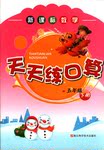题目内容
【题目】The sharing economy, represented by companies like Airbnb or Uber, is the latest fashion craze. But many supporters have overlooked the reality that this new business model is largely based on escaping regulations and breaking the law.
Airbnb is an Internet-based service that allows people to rent out spare rooms to strangers for short stays. Uber is an Internet taxi service that allows thousands of people to answer ride requests with their own cars. There are hundreds of other such services.
The good thing about the sharing economy is that it promotes the use of underused resources. Millions of people have houses or apartments with empty rooms, and Airbnb allows them to profit from these rooms while allowing guests a place to stay at prices that are often far less than those charged by hotels. Uber offers prices that are competitive with standard taxi prices and their drivers are often much quicker and more trustworthy.
But the downside of the sharing economy has gotten much less attention. Most cities and states both tax and regulate hotels, and the tourists who stay in hotels are usually an important source of tax income. But many of Airbnb’s customers are not paying the taxes required under the law.
Airbnb can also raise issues of safety for its customers and trouble for hosts’ neighbors. Hotels are regularly inspected to ensure that they are not fire traps and that they don’t form other risks for visitors. Airbnb hosts face no such inspections.
Since Airbnb is allowing people to escape taxes and regulations, the company is simply promoting thefts. Others in the economy will lose by bearing an additional tax burden or being forced to live next to an apartment unit with a never-ending series of noisy visitors.
The same story may apply with Uber. Uber is currently in disputes over whether its cars meet the safety and insurance requirements imposed on standard taxis. Also, if Uber and related services flood the market, they could harm all taxi drivers’ ability to earn a minimum wage.
This downside of the sharing needs to be taken seriously, but that doesn’t mean the current tax and regulatory structure is perfect.
【1】What is the positive thing about the sharing economy?
A. It is a global trend. B. It is beyond regulations.
C. It draws on spare resources. D. It brings in modest profits.
【2】What is the problem with Airbnb customers according to the passage?
A. They are not regularly inspected. B. They are likely to commit thefts.
C. They are allowed not to pay taxes. D. They can be noisy to hosts’ neighbors.
【3】What is the argument over Uber according to the passage?
A. Whether it guarantees customers, safety.
B. Whether it provides reliable services.
C. Whether it lowers customers’ expenses.
D. Whether it can compete with standard taxis.
【4】What will be talked about in the following paragraphs?
A. Existing regulations and laws.
B. Necessary improvements of current laws.
C. Further development of Airbnb and Uber.
D. More downsides of Airbnb and Uber.
【答案】
【1】C
【2】D
【3】A
【4】B
【解析】试题文章讲述了共享经济的利弊与发展。
【1】C 细节理解题。根据The good thing about the sharing economy is that it promotes the use of underused resources.可知共享经济模式的一大好处就是促进了闲置资源的利用,故选C。
【2】D 细节理解题。根据Airbnb can also raise issues of safety for its customers and trouble for hosts’ neighbors.可知空中食宿的问题就是这些顾客对于主人来说有些喧闹,故选D。
【3】A 细节理解题。根据Uber is currently in disputes over whether its cars meet the safety and insurance requirements imposed on standard taxis.可知对于优步的争议在于它的安全性,故选A。
【4】B 下文推测题。根据This downside of the sharing needs to be taken seriously, but that doesn’t mean the current tax and regulatory structure is perfect.可知文章最后在谈论共享经济的缺陷在于当前法律法规的不完善,故下文会接着谈这个问题,故选B。
作者态度及写作意图推断
每一篇文章都会包含作者的某种观点和态度,只不过有的直截了当,有的含而不露,有的通过所用词语的褒贬来体现。此类题可细分为作者态度题(表明作者的好恶)和作者观点题(表明作者对某事物的看法)。准确把握作者的情感和态度,需要注意以下几点:
1.作者对某一事物的看法,要么支持,要么反对,带中立色彩的词最不可能是正确答案。
2.漠不关心类词语往往不对,既然写文章就不会不关心。
3.不要把自己的态度揉入其中,也要区分作者的态度和作者引用的别人的态度。
4.当作者的态度没有明确提出时,要学会根据作者使用词语的褒贬性来判断。
5.作者的观点一般与文章的主旨相关联。
6.绝对化或语气过于强烈的选项常常是错误的,如:strong, complete, entire等。

 天天练口算系列答案
天天练口算系列答案